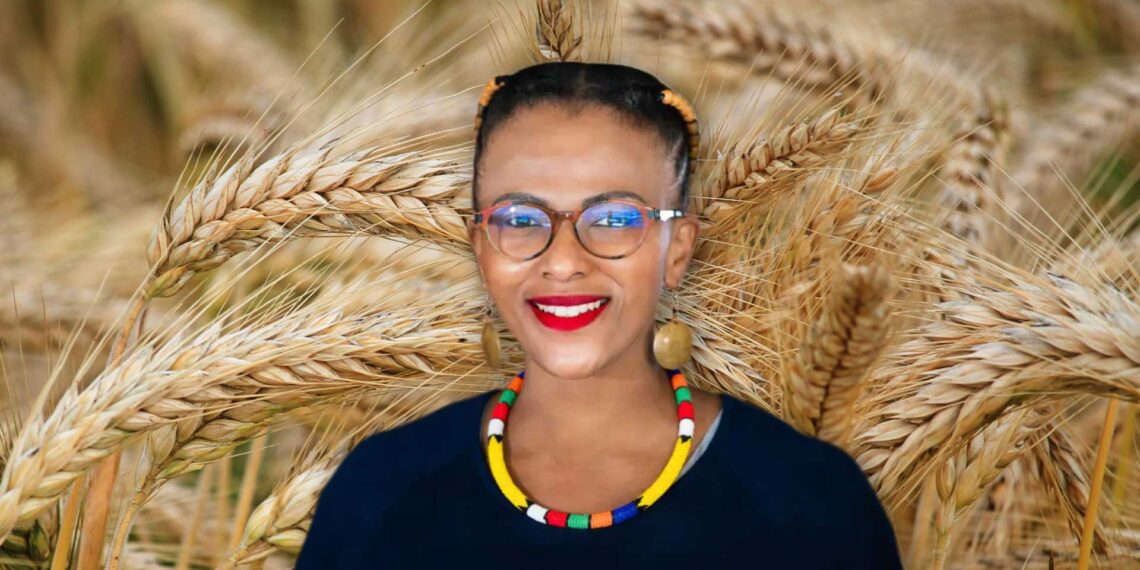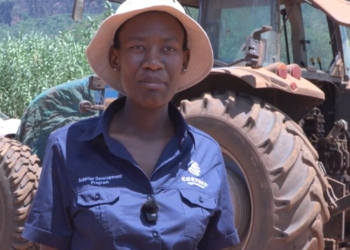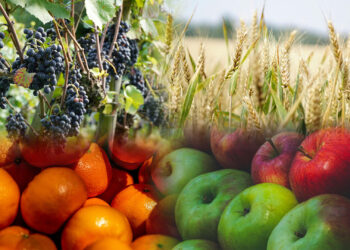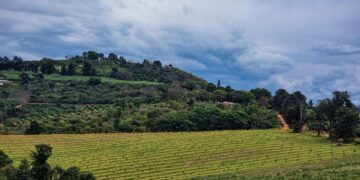As South African Breweries (SAB) celebrates 130 years of brewing heritage, the company’s leadership continues to emphasise its commitment to responsibility, sustainability, and innovation. This is particularly through initiatives such as SAB Sharp (South Africa Be Sharp), which promotes responsible consumption and active community engagement.
Food For Mzansi sat down with Zoleka Lisa, vice president of corporate affairs at South African Breweries (SAB), for an insightful conversation about the company’s approach to raw material sourcing, brewing innovation, and its close partnership with local farmers.
Patricia Tembo: Can you talk us through the sourcing of raw materials for your alcohol-free lager and how you ensure quality from grain producers?
Zoleka Lisa: Farmers are really the trigger to our brewing process because they provide us with high-quality ingredients. They too are part of the innovation story, because if you think of it, they need to have the right technology, mechanisation, and the like to produce the quality.
What we do with our farmers is we ensure that they’re skilled. We have an agronomy team that is dedicated to equipping them with the latest types of technical training and the like. We have a research and development centre in Caledon, where people run trials, and the farmers can actually see.
The big thing in farming is that it can’t be theoretical all the time. Farmers have to see and understand. That’s why we pair the agronomists with the farmers quite closely to see some of these innovations, the pesticides that we are recommending, all the types of farming. Then we connect them.
Related stories
- Grain farmers break records at prestigious Grow for Gold Awards
- Grain and oilseed markets: Tariffs shake up global trade
- Brewing change: Louw leads charge to elevate SA’s beer industry
More recently, in Taung, we were looking at a smallholder farming programme where we sourced some of our barley that goes into Castle Free. We were donating mechanisation with some partners.
It makes a huge difference, specifically for smallholder farmers, to have access to mechanisation. It makes them more efficient, more cost-effective.
Where are your barley farmers based?
There are some farmers in Caledon in the Western Cape, but we also have farmers in Taung, North West, as well.
How do market shifts within the grain industry impact production at the breweries?
We’re very much a localised business. 95% of the raw materials that go into our beers come from South Africa. So if we’re looking at even our grains, it’s very, very local.
The times we would have to be outside of that are if there’s been, for example, I think it may have been two years ago, you know, our barley fields were flooded. There was a lot of rain. So climate conditions are really the impact. If, let’s say, there’s a quality issue that has a big impact on a specific harvest, then we have to find an alternate source. Or if we need a demand that’s open about what we have planted, we go outside.
But by and large, locally produced. That is important because if you locally source, you create local jobs for local farmers. That’s just quite simple.
How is SAB playing a part in ESG initiatives and sustainability?
Our beer is natural, local, and inclusive. We use natural ingredients, local ingredients. So we’re very much in tune with nature. We work with water. We work with farmers. So we need a healthy environment. I think we focus on the areas where we can make an impact.
Ensuring that we’ve got opportunities to clear our watersheds at source, so that we can get water to our breweries and to our farms. We look at circular packaging. We really look at our value chain and do things that are really authentic to our brewing process.
Do you have a message for the grain producers who supply to SAB?
I would say it’s not even a word of encouragement; it’s a word of gratitude. Whenever we travel the country and go to our farmers who are using land, their hands, and dedication and commitment to make a living, that livelihood is giving us the raw materials that go into our beer. We are forever grateful for their commitment and that they can create a living this way.
I think they must keep up the amazing work in the quality ingredients that they’re providing. As well as the commitment to learning and growing with us. Be it an innovation or whatever the case may be. We’re super, super grateful for all their hard work.
READ NEXT: Four steps to formalise your farm and unlock finance

















